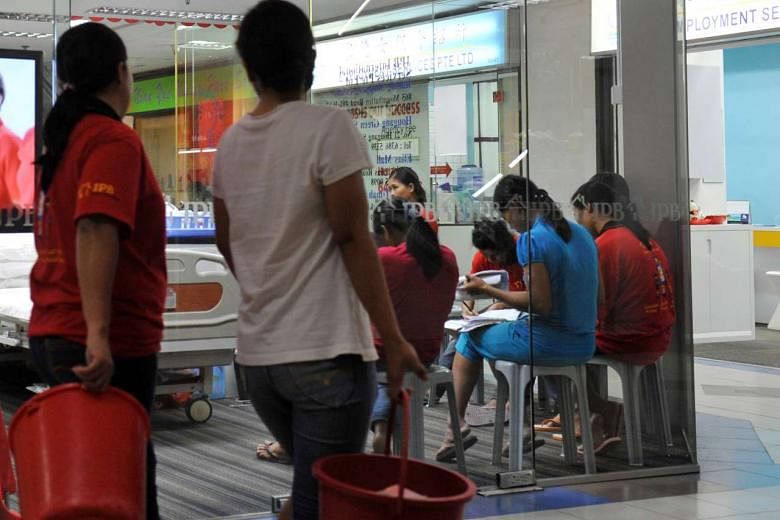Employers hoping to hire domestic workers from the Philippines can lend them up to $1,100 to cover their expenses. The helpers should use only up to half of their monthly salaries to repay the loan.
The new payment structure, which takes effect immediately, is meant to provide more clarity for workers and employers, said Association of Employment Agencies (Singapore) president K. Jayaprema.
"In the past, no one talked about the actual amount needed. We feel this is a sensible figure and should make the costs lighter and clearer, for employers as well," she said.
The latest guidelines are the result of about four years of discussions between her association and the Philippine-based Association of Licensed Recruitment Agencies to Singapore, along with the Philippine government, she added.
Singapore has about 237,100 foreign domestic workers, and around 70,000 are from the Philippines.
Under the new scheme, it is up to the domestic workers to decide how to use the cash advance, which can be provided by employers, agents or other institutions.
The associations found that the costs of preparing to work here, which include charges for pre-employment training, medical examinations and getting a passport, add up to about $1,100.
Employers here would still cover the agency fees.
Previously, employment agents would specify a lump sum for employers to pay, which includes a loan as well as fees charged by the Philippines recruitment agency and the local employment agency.
The numbers could vary significantly and go up to over $3,000 in fees, while domestic workers could spend up to seven months with almost all their wages deducted to cover a portion of the charges.
Yesterday, about 150 agents attended a briefing on the changes at the Civil Service Club in Tessensohn Road, where they had a dialogue with Philippine Embassy labour attache Ramon Pastrana.
Mr Pastrana said that while the new scheme is a private arrangement, the Philippine Overseas Labour Office at the embassy here is supportive and will continue to act against agencies if there are any complaints about overcharging.
He also stressed that it is illegal for Filipino domestic workers to be charged placement fees to work abroad. "This initiative is not a reason for agencies here to just go charge any salary deduction from the worker," he said.
"The $1,100 is just a cap for the workers, to cover whatever they need in the Philippines. If the workers say they don't need that, then there is no need for the two agencies to have a repayment scheme."
Mr Yeo Guat Kwang, chairman of the Centre for Domestic Employees, said the move to study and set out the costs domestic workers face before going abroad to work is welcome.
"The market has been charging more than that and there is a lack of transparency, so this is one step forward towards making it clearer and also establishing a cap," he said.
Nation Employment director Lim Chee Chong said the new scheme also helps to level the playing field among maid agencies.
"Now, we shouldn't see any... agencies charging employers very low fees but transferring the costs to the domestic workers," he said.


